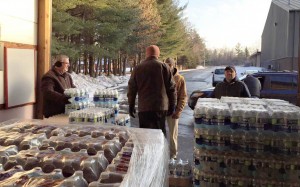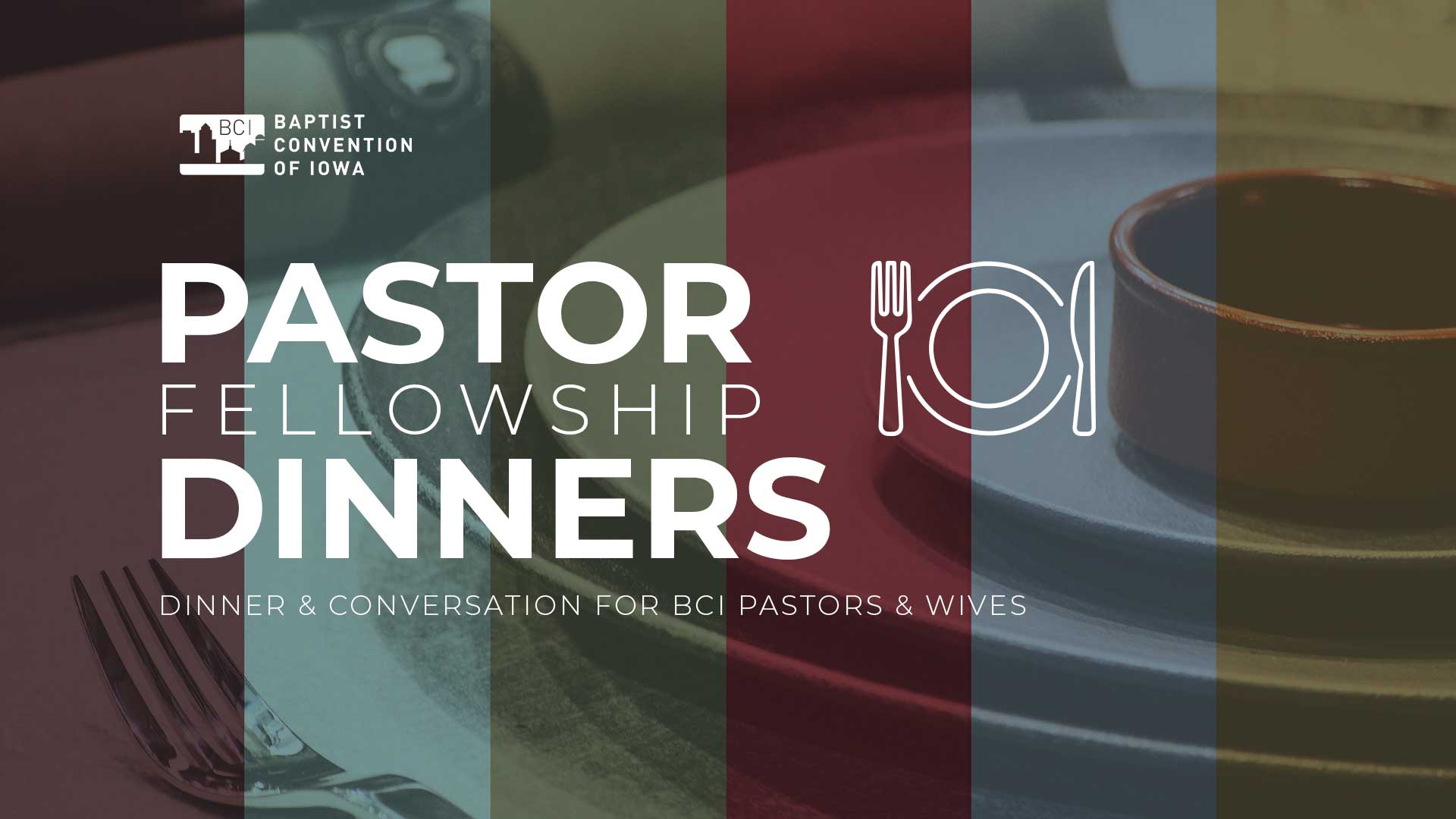By Tobin Perry

Volunteers from Westside Baptist Church near Flint, Mich., distribute bottled water after the city’s contaminated water supply left residents vulnerable to increased exposure to lead.
Photo courtesy Westside Baptist Church
FLINT, Mich. – Charnisha Brown could describe in one word her feeling when she first realized that the water coming out of her pipes was contaminated—devastated.
“It was devastating to me because of the kids—especially my kids,” said Brown, a Flint, Mich., resident. “We don’t want the kids going through that. We don’t want anyone going through that. It’s not a good thing that you can’t drink your water.”FLINT, Mich. – Charnisha Brown could describe in one word her feeling when she first realized that the water coming out of her pipes was contaminated—devastated.
So when Southern Baptists provided the mother of two with multiple cases of water, Brown appreciated it, saying it took stress off of her.
Last week Michigan Southern Baptists distributed a truckload of bottled water to Flint, Mich., residents whose contaminated water supply had led to the city being declared a disaster by the state and national governments. The truckload, sent from the North American Mission Board (NAMB), was the second Southern Baptist Disaster Relief truck full of water sent to the beleaguered city in the past three months.
The water’s contamination had become a problem since the city decided to save money three years ago by switching its water supply from Detroit to a new water authority that would get water from Lake Huron. In the transition time the city received water from the Flint River. The contaminated water had elevated lead exposure. According to a recentUSA Today article, there is no safe level of lead in water. Children, the article says, face the most danger when exposed to lead.
Distributed by Westside Baptist Church, just a couple of miles outside of Flint, volunteers gave each resident three to four cases of water. According to Westside Baptist’s pastor Ed Emmerling, most Flint residents were only able to get one case of water per day through other sources. Many families needed more water than that because of both drinking and cooking needs.
Emmerling appreciated that his church got a chance to be missionaries on the ground during the water distribution.
“My church got to see the real tangible value of the Cooperative Program in working with churches all across the country,” Emmerling said. “My church could never have afforded all of that water. But together churches from all across the country pooled their money. It was an honor for us to hand out. I’m glad our church could see the value of working together. It was a tremendous object lesson.”
As volunteers handed out water, they also had the opportunity to pray with residents, invite them to church and tell them about Jesus.
“We had many opportunities to tell people that we were doing this as a way to show our love for them, because Christ loves us and He loves them, too—and we’d love to tell them more about that love,” Emmerling said.
Win Williams, the state disaster relief director in Michigan, says he is looking into other potential ways of helping Flint residents through water purification units from other state conventions and providing 1-gallon and 5-gallon water containers, which are particularly helpful for cooking and cleaning needs. Both of those possibilities will require further evaluation.
Williams says efforts like this help show people in Michigan that Southern Baptists care about them.
Williams noted that Michigan Disaster Relief works through local churches, like Westside Baptist, because they will remain in the community once disaster relief volunteers leave.
“We want people to remember the local church not disaster relief when we leave,” Williams noted. “We’re just a tool that God has given the church to show the community that our churches care.”
Mickey Caison, the NAMB interim executive director for SBDR, echoed Williams’ hope for SBDR responses in the state.
“Especially in Michigan where we’re still small and we don’t have a lot of churches, this begins to show that Southern Baptists are people who care and are willing to minister in the context of great tragedy in their lives,” Caison said.
Those wishing to donate to SBDR relief can contact the Baptist convention in their state or visit http://donations.namb.net/dr-donations. For phone donations, call 1-866-407-NAMB (6262) or mail checks to NAMB, P.O. Box 116543, Atlanta, GA 30368-6543. Designate checks for “Disaster Relief.”
NAMB coordinates and manages Southern Baptist responses to major disasters through partnerships with 42 state Baptist conventions, most of which have their own state Disaster Relief ministries.
Southern Baptists have 65,000 trained volunteers—including chaplains—and 1,550 mobile units for feeding, chainsaw, mud-out, command, communication, child care, shower, laundry, water purification, repair/rebuild and power generation. SBDR is one of the three largest mobilizers of trained Disaster Relief volunteers in the United States, along with the American Red Cross and The Salvation Army.
Tobin Perry rites for the North American Mission Board.






